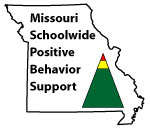
Fame…Can You Take It? That’s the question jumping out at us daily from magazine covers, TV news, and online gossip sites. In my world of entertainment, I’ve watched perfectly decent and talented people achieve the success that they’ve been striving for, only to crash and burn as their star rises.
But it happens in every walk of life, not only the entertainment field. It happens in politics, in sports and in daily life when the assistant manager at the grocery store gets promoted.
Fame. Success. When and if we get it, how do we handle it? Gratefully and inspiringly - or do we choose to go the other way and treat people badly and ourselves destructively?
At times, that means that we set boundaries within our relationships. There must be things that we will not accept from others. People must recognize that, while we still “eat with sinners and tax collectors”, we will not yield to their ways of life.
After all, aren’t there times when God tells us no? There are times when He wants to spank us for our own good - like the parent who tells the child, “This hurts me more than it does you.” Parents, like God, do not want to limit your enjoyment of life; they simply say no to you to help you avoid things, events, and people who tend to hurt, damage, or destroy. Discipline - saying no - is about protection. And while we may not feel it at the time, we should be thankful to those friends who help us say no to behaviors, habits, attitudes, and responsibilities that could potentially damage or destroy us.
The apostle Paul was a coach to Timothy. He was a mentor that Timothy could look to for practical advice and example. Paul served Timothy by guiding him around the stumbling blocks that could potentially send Timothy plummeting off the trail and down the cliff. We all have blind spots, and we must be willing to listen when a fellow
Christian is trying to help us avoid those things that can harm us. If I’m headed over a cliff, your love for me should tell you that it’s time to speak up. Don’t think you are loving me by allowing me to continue as I please and allow me to walk over the edge.
Here are some examples of how Paul addressed things to young Timothy:
In Second Timothy 2:22–25, Paul writes to him: “Now flee from youthful lusts and pursue righteousness, faith, love, and peace with those who call on the Lord from a pure heart. But refuse foolish and ignorant speculations, knowing that they produce quarrels. The Lord’s bond-servant must not be quarrelsome, but be kind to all, skillful in teaching, patient when wronged…”
Then, in 3:1-6, Paul continues like this: “But realize this, that in the last days difficult times will come. For people will be lovers of self, lovers of money, boastful, arrogant, slanderers, disobedient to parents, ungrateful, unholy, unloving, irreconcilable, malicious gossips, without self-control, brutal, haters of good, treacherous, reckless, conceited, lovers of pleasure rather than lovers of God, holding to a form of godliness although they have denied its power; avoid such people as these. For among them are those who slip into households and captivate weak women weighed down with sins, led on by various impulses…”
But this is not only the case with how we treat brothers and sisters in Christ. We must also develop an ability to say no to well-meaning people when they conflict with God.
In Galatians 2:11–14, the Jewish Christians accused Paul of watering things down. They thought the apostle was making things too easy for the Gentiles to join up. At the same time, the inspired Paul knew the truth - that these brethren were adding traditions that were no longer necessary for salvation after the death, burial, and resurrection of Jesus.
See what Paul writes in Galatians 2: “But when Cephas came to Antioch, I opposed him to his face, because he stood condemned. For prior to the coming of some men from James, he used to eat with the Gentiles; but when they came, he began to withdraw and separate himself, fearing those from the circumcision. The rest of the Jews joined him in hypocrisy, with the result that even Barnabas was carried away by their hypocrisy. But when I saw that they were not straightforward about the truth of the gospel, I said to Cephas in the presence of all, ‘If you, being a Jew, live like the Gentiles and not like the Jews, how is it that you compel the Gentiles to live like Jews?’”
Unfortunately, we read, “…when Cephas came to Antioch I opposed him to his face, because he stood condemned,” but we read it with attitude: I got all up in his face and read him the riot act. I threw the book at him. Why? Because he was wrong, and he needed somebody to tell him how wrong he was. That’s not how it was put. Paul knew that Cephas was wrong, and out of concern that Cephas stood condemned - that the man could lose his soul for the way he was leading - Paul knew it was his job to correct him. The letter to the Galatians is not Paul bragging to the church about how he yelled and asserted his authority to Cephas; it is about correcting a brother in truth and love - not accepting things and allowing them to continue, but coaching, mentoring, guiding around the past and the habits that still existed.
There is another example of love for others: it is love that compels us to care enough for others that we are willing to help them find and stay on the strait and narrow path to the presence of God.
There is that vulnerability again: when we are approached by someone for correction, it is the ability to accept that correction as a loving act on their part. Sometimes the tone can be misread as meanness, but listen to what they have to say: there might be some validity to what they say, regardless of how they might say it.
And there is our chance to say thank you to them in response to their no.
We look at this lesson from two viewpoints - the deliverer and the receiver of the no message. It is a worthy thing to consider now, before it ever comes up in reality. How will you act in the situation?








































